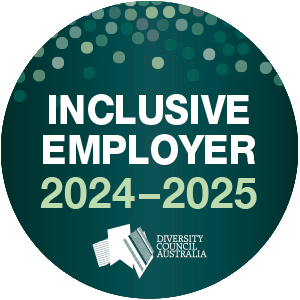10 February 2017
Through the Men’s Referral Service we speak to a lot of men in a wide variety of family and relationship contexts with a range of challenges and issues that arise. Quite often we speak to men who are talking about these issues for the first time and in this initial phone conversation we talk to them about taking the next steps toward safer and happier relationships and families.
Sometimes the men who call us have already thought about what kind of support they need and are seeking information about anger management programs or couples counselling. Quite often, once we explore with a caller what he wants to achieve, it becomes clear that a specialist family violence service, such as a men’s behaviour change program, would be the best support for him, rather than other options. Here’s a look at why:
Anger Management
‘Anger Management’ is a popular term and is often the go-to suggestion for men who respond to conflict with violent or aggressive behaviour. However, in the context of relationships ’anger management’ can be limiting and doesn’t address important safety concerns. While anger is a common emotional experience for many of the men we speak to, exploring their responses to anger more broadly often shows that they are already managing it quite well in most situations. They don’t yell at a police officer when they’re angry at being issued a ticket, they don’t punch a hole in the wall when they’re angry at a colleague, they don’t assault a stranger when they’re angry about waiting in line at the bank.
Quite often the issue they want support around is specific to their intimate and family relationships. To make things more complicated, they are often experiencing other difficult emotions connected to their relationships such as jealousy, sadness, or vulnerability. For men wanting to make changes to how they behave towards their partners or families, specialist family violence support is most appropriate.
Relationship Counselling
Relationship, or couples counselling can help a people work through communication issues in their relationships . However, this kind of counselling is only effective if both partners feel safe enough to express their concerns. When we speak with men who describe having used aggressive, abusive or controlling behaviour toward their partner, we know their partner may feel intimidated or scared to be open about what is bothering them in the relationship, so we won’t usually recommend relationship counselling. The first step for a man in this situation is to understand and address how his behaviour is creating the power imbalance, so that his partner can feel safe enough to work through communication issues with him.
Alcohol & Other Drugs or Mental Health Services
Many of the men we speak to tell us that they were under the influence of alcohol at the time they used violence or abusive behaviour towards their partner or a family member. Similarly, some men describe their mental health issues as the cause of such behaviour. However, often once we start unpacking their situation it becomes clear that they have never behaved violently towards anyone else while under the influence of alcohol or as a result of their mental illness. This suggests that they are capable of making non-violent choices and do have control over their behaviour in certain contexts.
While addiction and mental health services are important, they very rarely address men’s use of family violence specifically. Specialist family violence services can be an important addition to a man’s support network.
‘But I’m not like that!’
No matter how they have behaved toward their partner or family, we find that most men we speak with will try to avoid talking about what the issue is by focusing on what it is not, “It’s not like I…. I’m not as bad as… I’m not a violent guy!” This is understandable, it can be challenging to take responsibility for how you have chosen to behave if these choices hurt people you care about. However, this can be a barrier to accessing the support which could assist in addressing controlling, abusive and physically violent behaviours of all kinds.Engaging in a family violence specific service for men, such as a men’s behaviour change program, does not mean you need to adopt the identity of ‘a violent man’. Rather, it shows that you are choosing to address your behaviour and are working towards safer, more respectful ways of working with your partner or family.
________________________________________________________________________________
If you are concerned about your own behaviour or how someone you know is behaving, contact us on 1300 766 491 for more information about specialist family violence support. In an emergency, call 000.








